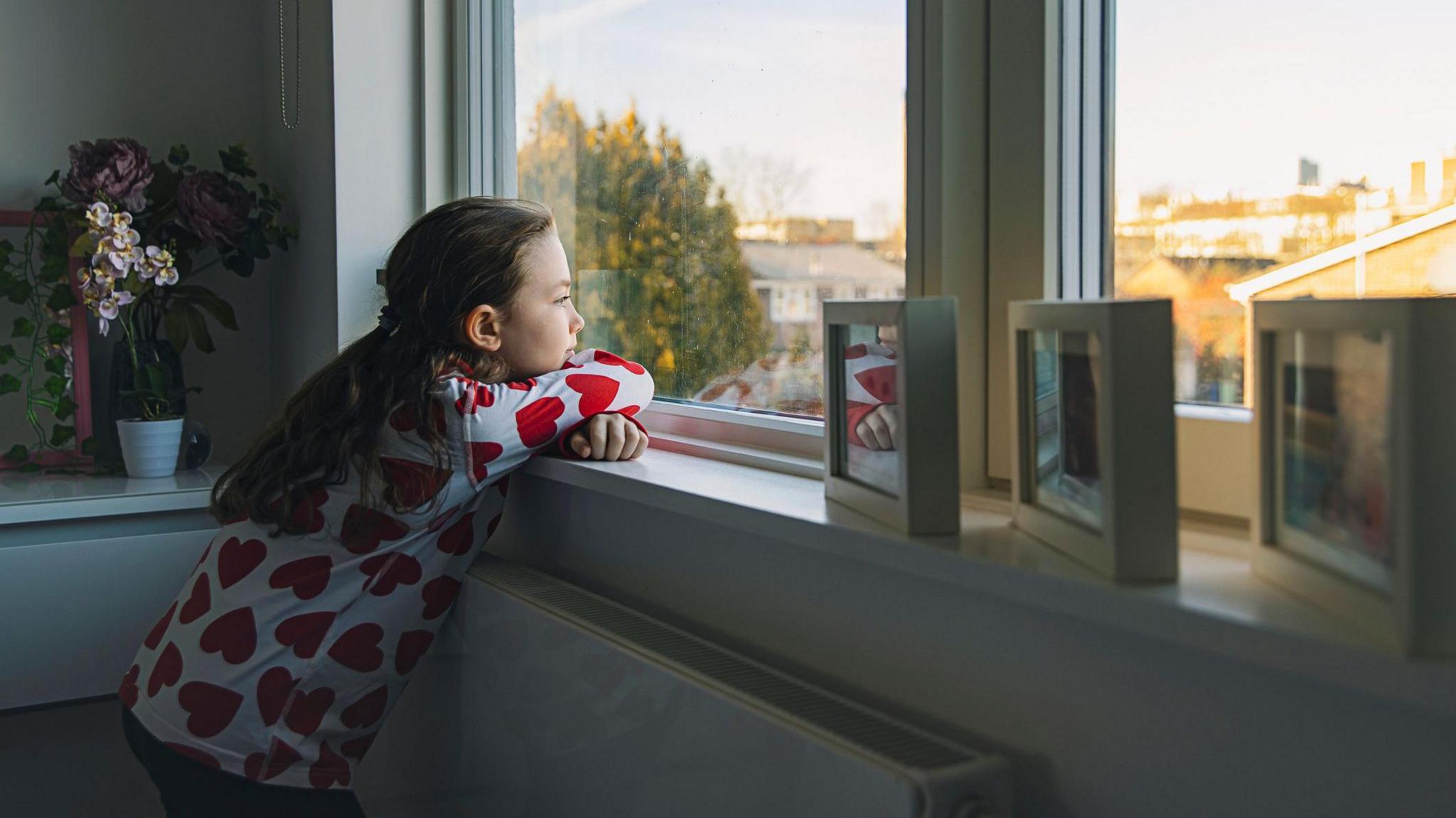Record number of children in temporary accommodation

- Published
More than 150,000 children are living in temporary accommodation in England, according to the latest official figures.
The number of children who are homeless and living in temporary accommodation - a form of homelessness that includes people living in hostels or bed and breakfasts (B&Bs) - with their families, has risen to 151,630 in England, the highest since records began in 2004.
The figures were released by the the Ministry of Housing, Communities and Local Government (MHCLG) on Thursday.
They also showed the number of homeless families living in emergency accommodation such as B&Bs and hostels has reached 8,860 – a rise of 29% in a year.
Newsround investigated this issue in a special programme, No Place to Call Home, that you can watch here.
Newsround investigates how children are affected by homelessness.
By law, B&Bs are only meant to be used to house families in an emergency for a maximum period of six weeks.
But figures show that children have been housed in temporary accommodation like this for much longer than this by local authorities.
The housing charity Shelter says families having to leave private tenancy, a home which is owned by someone else and rented to the person living there, remains the leading reason for homelessness.
The previous Conservative government promised to get rid of what is known as 'no-fault evictions', but this was not achieved before the general election in July.
A no-fault eviction is when a landlord uses something called a 'Section 21' notice to force people to leave the home they are renting from them.
Record number of children affected by homelessness in the UK
- Published16 May 2024
Cost of Living Crisis: What is it and when will it end?
- Published23 February 2024
What is homelessness? Video, 00:02:20
- Published25 June 2018
Polly Neate chief executive of Shelter said more needed to be done.
"Without a clear plan to invest in genuinely affordable social homes, thousands more children will be forced to grow up in damaging temporary accommodation, spending months if not years living out of suitcases, crammed into grim bedsits and B&Bs, and unable to put down any roots.
She called on the government to establish a "homelessness strategy and scrap no fault evictions" to "end homelessness".
The new Deputy Prime Minister and Housing Secretary, Angela Rayner called the situation a "national scandal".
She said the government was boosting housebuilding and plans to get rid of Section 21 'no fault evictions'.
